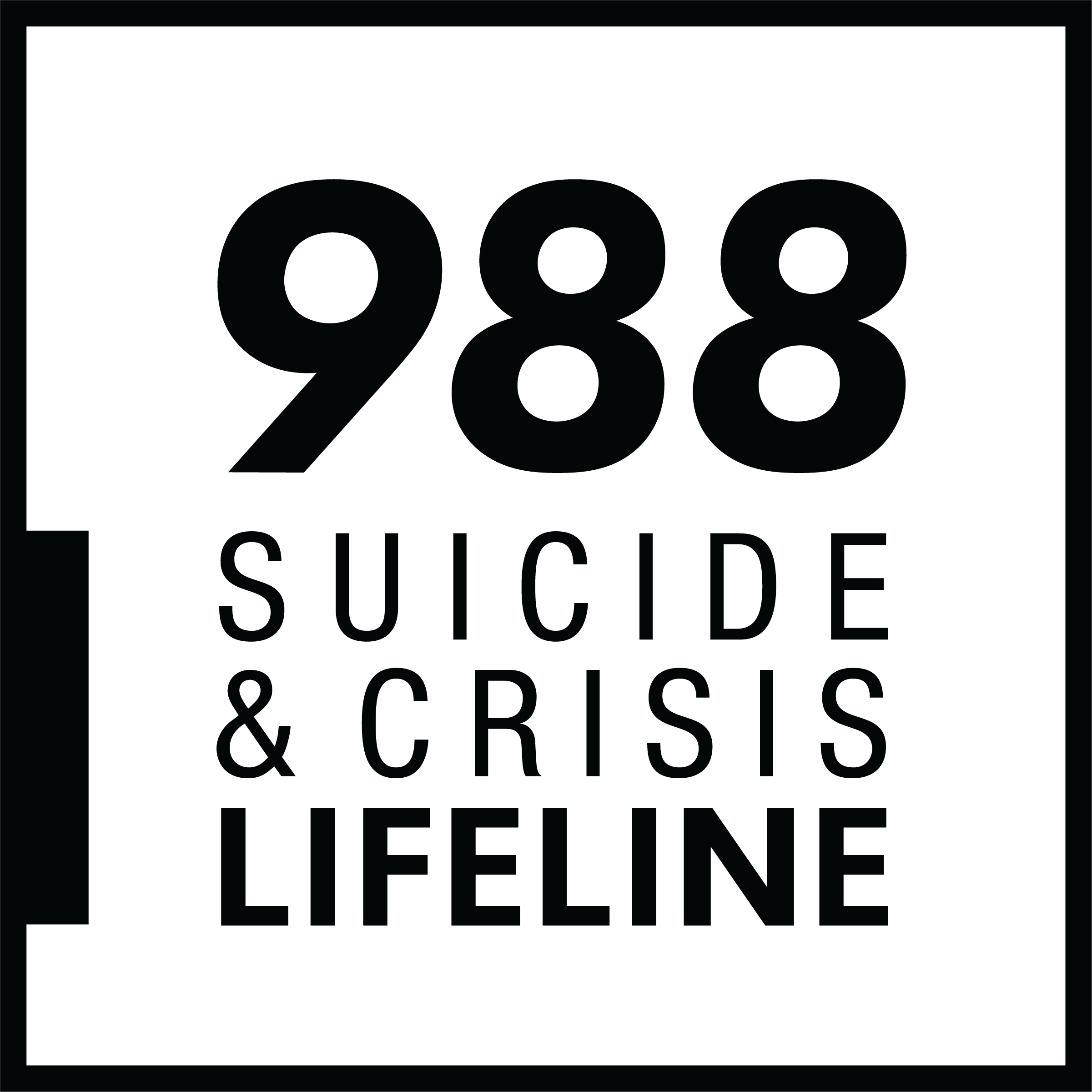Helping a Loved One in Crisis
In my work, I often talk to people about how to support someone in a crisis. How do I keep them safe, and how do we help them on their journey toward getting better? Most people aren’t familiar with or educated about this topic. So often, we find ourselves in situations where we are trying to help a child, a friend, or a family member through these challenging times.
The Crisis Line
The national crisis line can be reached by calling or texting 988 anywhere in the United States.
One powerful tool that you should always consider using is the national crisis hotline. Unfortunately, many people wait too long to use it. The people who answer this line are all trained and licensed therapists. They will help a person by walking them through unique coping skills and ways to de-escalate. At the same time, they will assess the situation for safety.
Most people, however, usually assume that when someone dials the hotline, the police will be at their door posthaste. This is not necessarily correct. The crisis hotline can help people process whatever they’re going through, perhaps even an intense panic attack or intense feelings of hopelessness or suicidal thoughts. But they will only hold someone against their will if it’s alarming. The threshold has to be relatively high for that to happen.
Seeking Help at Emergency Rooms for Mental Health Concerns
The next step beyond a hotline would be to take yourself to any emergency room. In Kansas City, I recommend Cottonwood Springs Mental Health Hospital or AdventHealth as your main hospital options. The University of Kansas hospital at Strawberry Hill is also a good option. All of these facilities have 24-hour coverage in the emergency department, and you can get your loved one screened there immediately.
It would be easier to make an appointment with the mental health staff at the given facility ahead of time, even if it’s just for the day before. This is to minimize the time spent in the waiting room.
It’s also possible that some people wait too long before going to the ER because they think it’s a last resort. Many distressed patients come to the ER, talk to a therapist, get screened, and are assessed to be at a level of risk that does not require hospitalization.
Also, some people are overly concerned that if they go to the hospital, the doctor will hold them against their will even if they do not want to stay. This is untrue. If somebody’s an imminent danger to themselves or somebody else, then yes, the hospital would hold them since the admission bar is relatively high. Typically, they screen the patient and decide if it would be better for them to be admitted to the hospital or if an outpatient program would suit their needs.
As a result, I don’t want anyone to think that anyone who goes to the ER with suicidal thoughts will be restrained without their consent. But if the doctors are worried about a patient’s distress, taking extra precautions to keep them safe is necessary.
Most of the time, we are concerned that offering to take someone to the hospital will upset them and make them lose trust in us. But, I’ve learned that if you choose between keeping a person safe and making them upset, action needs to be taken to prioritize their safety. And taking action to help your loved one is the most important thing. They may be upset at first, but later, they’ll come to understand the situation that they were in and that you were trying to do the best thing for them. The experience of getting screened usually shows them that resources are available to help them.
Final Thoughts
In closing, I want people to know that even if they go to the ER and have their loved one screened, but the hospital decides not to admit them or their loved one refuses to be admitted, this isn’t a failure or a waste of time. Often, going to the hospital and talking to a professional can depressurize and de-escalate the thought process they’re stuck in.
At the same time, if the hospital admits them, this will only solve some of their problems. The hospital will only hold them for three to five days. This is an excellent chance for them to get evaluated by a psychiatrist and participate in group sessions to learn new tools to experience different coping methods. It’s a step towards improved wellness, but they will not come out cured after five days.
